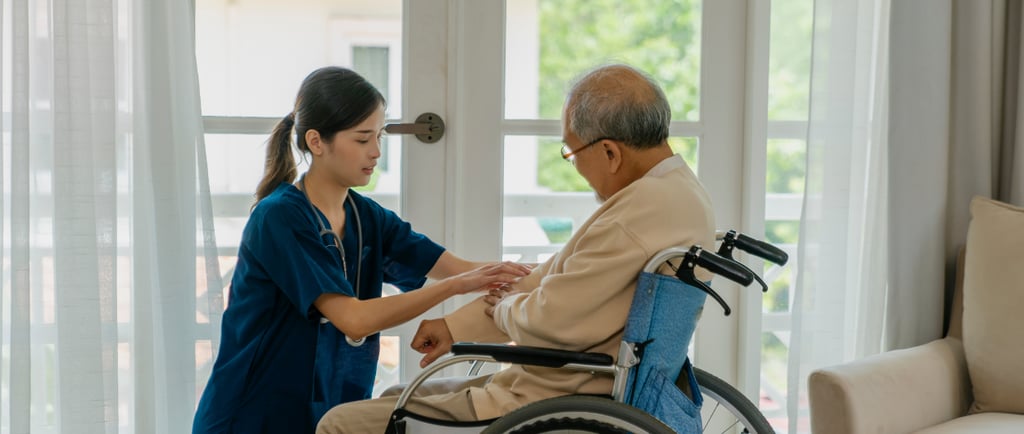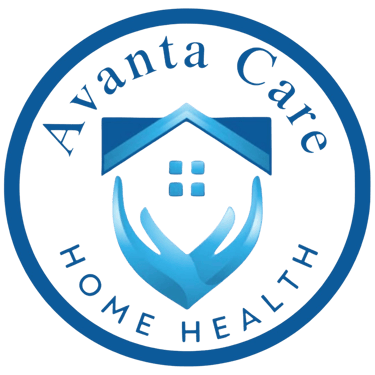Homecare and Emergency Preparedness: Why Caregivers Must Plan for the Unexpected
Most families focus on daily care routines, but very few consider how prepared their loved one’s caregiver is for emergencies such as sudden illness, extreme weather, power outages, or medical crises at home.
10/10/20255 min read


The Importance of Emergency Training in Homecare
The realm of homecare is marked by its unpredictable nature, making emergency training critically essential for caregivers. Various emergencies can unexpectedly arise, including sudden health crises like heart attacks or strokes, as well as extreme weather events such as floods and blizzards. Without adequate preparation, caregivers may find themselves ill-equipped to address these urgent situations, potentially jeopardizing the safety and well-being of their clients.
Emergency training instills caregivers with the necessary skills and knowledge to respond effectively during critical incidents. For instance, understanding the steps of administering first aid or recognizing the signs of a medical emergency can be life-saving. Furthermore, training programs often cover evacuation procedures and contingency plans for natural disasters, providing caregivers with strategies to ensure a safe environment, even in dire situations. Such preparedness not only enhances their confidence but also reassures clients and their families.
Regular emergency workshops and drills play a pivotal role in keeping caregivers sharp and ready for action. These training sessions strengthen their practical skills and promote muscle memory, enabling them to react swiftly under pressure. Participants can engage in scenario-based exercises that simulate real-life emergencies, honing their decision-making abilities and team coordination. Over time, continuous learning can lead to improved outcomes for clients, as caregivers become proficient in applying emergency protocols swiftly and effectively.
Investing in emergency training is paramount for caregivers in homecare settings. As they prepare to face various unexpected challenges, their commitment to safety—backed by comprehensive training—can foster a secure and supportive atmosphere for their clients. Ultimately, this proactive approach ensures that both caregivers and clients are well-prepared, enhancing quality of care during critical moments.
Creating a Personalized Emergency Plan for Clients
Establishing a personalized emergency plan for clients is fundamental in ensuring their safety during unforeseen situations. The process begins with a comprehensive assessment of each client's unique needs, preferences, and challenges. This assessment should consider factors such as mobility issues, cognitive abilities, and any specific medical conditions that may affect their response to emergencies.
One key component of the plan is effective communication strategies. Caregivers should ensure that the client and their families are well-informed about emergency procedures. This can include developing easy-to-understand visual aids or printed materials that outline steps to take during emergencies. Additionally, establishing a designated point of contact for family members can help alleviate anxiety during a crisis, ensuring that everyone knows where to turn for information and support.
Another essential element to incorporate into the emergency plan is the identification of evacuation routes. Caregivers should familiarize themselves and their clients with multiple exit points from the home, as well as the safest ways to navigate any potential obstacles. When necessary, it may be beneficial to conduct practice drills to ensure that clients are comfortable with the plan and can execute it smoothly in real-life situations.
Furthermore, the emergency plan must include specific medical considerations. This encompasses keeping a current list of medications, allergies, and medical contacts readily accessible. It should also detail any tailored procedures required due to the client’s health issues. Engaging clients and their families in this process not only fosters open communication but also encourages them to take ownership of their safety and wellbeing.
Regularly reviewing and updating the emergency plan is crucial, particularly when there are changes in the client’s health status, living situation, or local emergency protocols. By revisiting the plan, caregivers can ensure that it remains relevant and practical, supporting the client in navigating emergencies with confidence.
Essential Medical Information Caregivers Should Keep Ready
Caregivers play a pivotal role in ensuring the well-being of those they care for, particularly during emergencies. To effectively respond to unexpected situations, it is crucial for caregivers to maintain a comprehensive repository of essential medical information. This information not only aids in providing immediate care but also serves as a vital communication tool with healthcare professionals.
At the forefront of these records should be a detailed list of medications. This should include the name, dosage, frequency, and purpose of each medication the individual is taking. Additionally, caregivers must document any known allergies, particularly to medications or food, as this can significantly influence treatment decisions made during emergencies. It is advisable to keep this information updated and to conduct regular reviews to ensure accuracy.
Caregivers should also compile a list of emergency contacts. This should include not only family members but also healthcare providers who can be reached quickly. Having this information readily available can expedite the response time required during a medical crisis. Furthermore, documenting the individual’s medical history, such as previous illnesses, surgeries, and chronic conditions, provides invaluable context to healthcare professionals.
Another critical component is the presence of advance directives. These legal documents outline the individual's preferences for medical treatment in scenarios where they may be unable to communicate their wishes. Caregivers should ensure that these directives are easily accessible and understood by those involved in the individual's care, including family members.
Finally, it is essential to educate clients’ families about where to find this important information and emphasize the importance of keeping it updated. Utilizing both physical copies (such as binders or folders) and digital formats (like secure cloud storage) can facilitate easy access and sharing when needed. By maintaining a well-organized and comprehensive medical information system, caregivers can enhance preparedness for any emergency scenarios they may encounter.
How Preparedness Builds Trust and Protects Vulnerable Clients
Preparedness plays a fundamental role in the caregiver-client dynamic, establishing a foundation of trust and security that is essential for vulnerable individuals. When caregivers develop a comprehensive emergency plan, they demonstrate not only professionalism but also a genuine commitment to the well-being of their clients, fostering confidence among families and enhancing the overall caregiving experience. This dual focus on preparedness and trust cultivates a partnership where clients feel valued and protected.
In scenarios such as natural disasters, medical emergencies, or unexpected incidents, having a solid emergency plan can make a significant difference. For example, caregivers who regularly conduct safety drills or who have clear protocols for addressing potential crises show their commitment to safeguard the individuals in their care. One illustrative case involved a caregiver who proactively prepared her elderly client for a power outage during a severe storm. She ensured that her client had access to essential medications, food, and flashlights, and they practiced what to do in the event of an emergency. When the power ultimately went out, the client felt secure and reassured, knowing they had a plan in place.
This proactive approach not only protects clients but also alleviates anxiety for their families. When caregivers communicate their preparedness strategies effectively, families can trust that their loved ones are in capable hands. Furthermore, the ethical responsibility of caregivers to guarantee the safety and security of their clients reinforces preparedness as a standard in caregiving. By embracing readiness as an integral aspect of their role, caregivers enhance their professional credibility and strengthen the bonds of trust crucial to their relationship with clients. Ultimately, a commitment to preparedness is essential for ensuring not only the safety of vulnerable individuals but also the peace of mind of their families.


